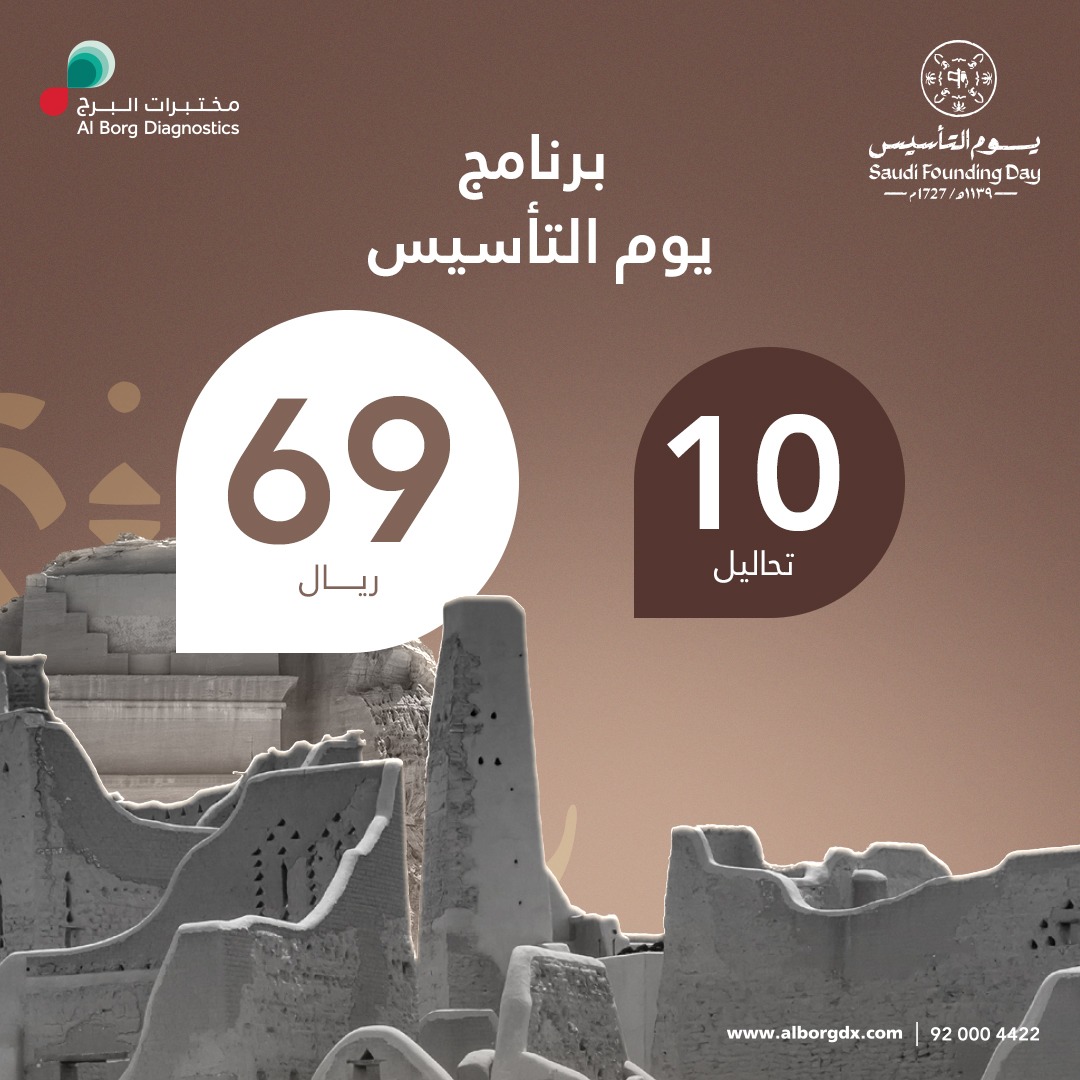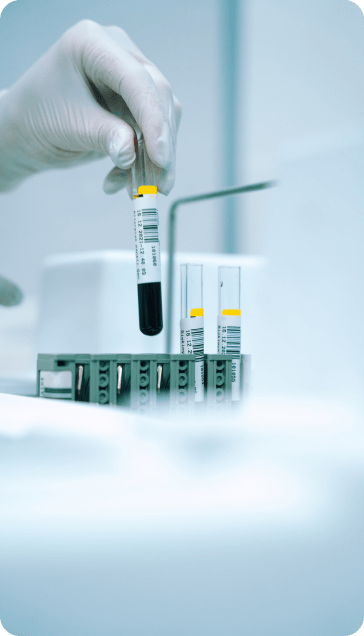Founding Day Standard Program – Fasting
List of Included Tests - 10 Tests
A complete blood count (CBC) is a blood test used to evaluate your overall health and detect a wide range of disorders, including anemia, infection, platelets disorders and leukemia.
Glucose is a type of sugar. It is your body’s main source of energy. A blood glucose test measures glucose levels in your blood. A hormone called insulin helps move glucose from your blood into your cells.Too much or too little glucose in the blood can be a sign of a serious medical condition.
Glycated Haemoglobin (HbA1c) is a blood test that is used to help diagnose and monitor people with diabetes. It measures the amount of blood sugar (glucose) attached to your hemoglobin. It shows your average blood sugar level over the past 2 or 3 months.The higher the hemoglobin A1c, the higher your risk of having complications related to diabetes.
This test is done to measure the amount of Alanine Aminotransferase (ALT) in blood serum. ALT is an enzyme found mostly in the liver. This test is prefered to be done on a regular basis to assure liver is in a healthy state
A calcium blood test measures the amount of calcium in your blood. Calcium is one of the most important minerals in your body. You need calcium for healthy bones and teeth. Calcium is also essential for proper functioning of your nerves, muscles, and heart.
Creatinine is a chemical compound left over from energy-producing processes in your muscles.This test measures how well your kidneys are performing their job of filtering waste from your blood. Healthy kidneys filter creatinine out of the blood. Creatinine exits your body as a waste product in urine.
Cholesterol is a waxy substance found in your blood. Your body needs cholesterol to build healthy cells, but high levels of cholesterol can increase your risk of heart disease.
HDL cholesterol can be thought of as the “good” cholesterol because a healthy level may protect against heart attack and stroke.HDL carries LDL (bad) cholesterol away from the arteries and back to the liver, where the LDL is broken down and passed from the body.
A sodium blood test measures the amount of sodium in your blood. Sodium is a type of electrolyte. Electrolytes are electrically charged minerals that help maintain fluid levels and the balance of chemicals in your body called acids and bases. Sodium also helps your nerves and muscles work properly.
A potassium blood test measures the amount of potassium in your blood. Potassium is a type of electrolyte. Electrolytes in your body help control muscle and nerve activity, maintain fluid levels, and perform other important functions. Your body needs potassium to help your heart and muscles work properly.
Founding Day Standard Program – Random
List of Included Tests - 10 Tests
A complete blood count (CBC) is a blood test used to evaluate your overall health and detect a wide range of disorders, including anemia, infection, platelets disorders and leukemia.
It is a test that measures your blood sugar at the time you’re tested. You can take this test at any time and don’t need to fast (not eat) first.
Glycated Haemoglobin (HbA1c) is a blood test that is used to help diagnose and monitor people with diabetes. It measures the amount of blood sugar (glucose) attached to your hemoglobin. It shows your average blood sugar level over the past 2 or 3 months.The higher the hemoglobin A1c, the higher your risk of having complications related to diabetes.
This test is done to measure the amount of Alanine Aminotransferase (ALT) in blood serum. ALT is an enzyme found mostly in the liver. This test is prefered to be done on a regular basis to assure liver is in a healthy state
A calcium blood test measures the amount of calcium in your blood. Calcium is one of the most important minerals in your body. You need calcium for healthy bones and teeth. Calcium is also essential for proper functioning of your nerves, muscles, and heart.
Creatinine is a chemical compound left over from energy-producing processes in your muscles.This test measures how well your kidneys are performing their job of filtering waste from your blood. Healthy kidneys filter creatinine out of the blood. Creatinine exits your body as a waste product in urine.
Cholesterol is a waxy substance found in your blood. Your body needs cholesterol to build healthy cells, but high levels of cholesterol can increase your risk of heart disease.
HDL cholesterol can be thought of as the “good” cholesterol because a healthy level may protect against heart attack and stroke.HDL carries LDL (bad) cholesterol away from the arteries and back to the liver, where the LDL is broken down and passed from the body.
A sodium blood test measures the amount of sodium in your blood. Sodium is a type of electrolyte. Electrolytes are electrically charged minerals that help maintain fluid levels and the balance of chemicals in your body called acids and bases. Sodium also helps your nerves and muscles work properly.
A potassium blood test measures the amount of potassium in your blood. Potassium is a type of electrolyte. Electrolytes in your body help control muscle and nerve activity, maintain fluid levels, and perform other important functions. Your body needs potassium to help your heart and muscles work properly.





